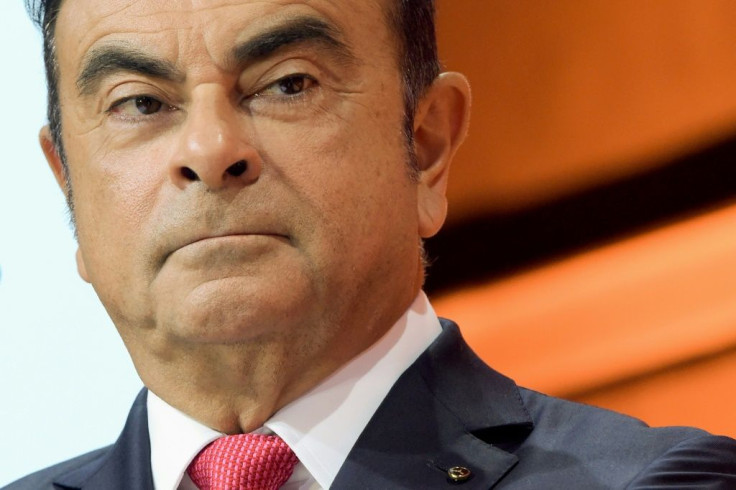Carlos Ghosn Update: Interpol Issues Warrant For Arrest Of Lebanese Fugitive, Former Nissan CEO

KEY POINTS
- Ghosn may have entered Lebanon with a French passport
- Turkish police arrested seven people in connection with Ghosn's escape
- Ghosn is living under protection of armed guards in Beirut
Interpol, the international police agency based in France, issued a “red notice” warrant Thursday for the arrest of former Nissan chairman Carlos Ghosn, who mysteriously fled Japan for Lebanon earlier this week.
An Interpol "red notice" allows police across the globe to provisionally arrest a person pending extradition, surrender or other legal action.
The request was sent to Lebanon's internal security forces – although Lebanon has no extradition treaty with Japan.
Lebanon’s justice minister Albert Serhan told the Associated Press that Lebanese prosecutors “will carry out its duties,” suggesting that Ghosn might be interrogated. But Serhan ruled out the possibility that Ghosn would be handed over to Tokyo.
Ghosn, who faces various charges of financial misconduct in Japan, somehow escaped heavy surveillance in Tokyo and made his way to Beirut without any of his three passports. The Brazilian-born Ghosn is a citizen of Lebanon, France and Brazil.
Lebanese officials earlier claimed Ghosn arrived in Beirut “legally” and that there was no reason to question him.
France has already said it will not extradite him if he were to arrive in the country. French Finance Minister Agnes Pannier-Runacher said Ghosn "should not have absconded from the Japanese justice system,” but added that "France never extradites its nationals."
Ghosn is reportedly living with his wife in a wealthy suburb of Beirut under the protection of armed guards.
He reportedly arrived in Beirut by private plane after first landing in Istanbul, Turkey on a flight from Kansai airport in Osaka, Japan. Turkish media reported that police in Istanbul have arrested seven people in connection with Ghosn’s escape, including four pilots, a cargo company manager and two airport workers.
Ghosn reportedly left Japan with the help of a private security firm and had been planning his escape for months.
Upon arriving in Beirut, Ghosn claimed that he had "escaped injustice and political persecution" in Japan.
Ghosn’s trial in Japan was slated to start in April. He was first arrested by Japanese police in November 2018 and spent more than 100 days in prison before posting bail. He was arrested again in April 2019 after speaking in public about his case. Under his detention in Japan, Ghosn was watched closely by police, his communications monitored and was ordered not to leave Tokyo.
The Lebanese government on Thursday denied reports that President Michel Aoun greeted Ghosn upon his arrival in Beirut. "He was not received at the presidency and did not meet the president," a senior official told Agence France Presse.
Ghosn said he will speak to the media next week.
Meanwhile, Japanese prosecutors on Thursday raided Ghosn’s Tokyo residence. The 1.5 billion yen ($14 million) bail that Ghosn had posted on two separate occasions has been revoked.
While Ghosn’s Japanese legal team said they possessed all three of his passports, Japanese public broadcaster NHK TV reported that Ghosn might have had two French passports, one of which he used to enter Lebanon.
Lebanon had actually been pressuring Japanese authorities to release Ghosn since he was first arrested and made another request only a week ago.
Ghosn faces a possible 15-year jail sentence in Japan if he is convicted of a raft of charges, including allegations that he under-reported his income and illegally transferred funds from Nissan to his personal accounts.
© Copyright IBTimes 2025. All rights reserved.





















